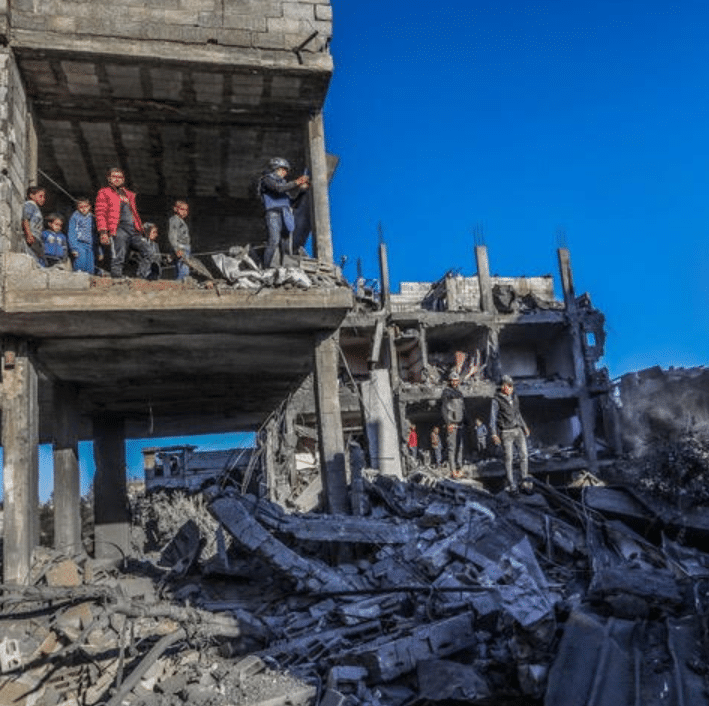When news of the Oct. 7 attacks on southern Israel by Hamas militants reached Palestinians in the Gaza Strip, many took to the streets in celebration, distributing sweets and cheering fighters as they paraded hostages through the enclave.
[The Wall Street Journal Report continues]
A survey by the Palestinian Center for Policy and Survey Research, a Ramallah-based think tank, found that one in five Gazans polled blamed Hamas for their suffering in the war. The survey, completed in early December, also found that support for Hamas, which has ruled the enclave with an iron fist for years, had increased slightly since Oct. 7, with 42% of respondents choosing it over other Palestinian parties.
In the West Bank, which is far from the fighting in Gaza, by contrast, support for Hamas more than tripled between September and early December, when 44% of respondents said they backed the group, according to the survey.
“Gaza, which usually gives Hamas greater support, is showing more criticism of Hamas than the West Bank. There is more questioning of the decision to go to war,” said Khalil Shikaki, director of the think tank and a professor of political science based in Ramallah.
[The Wall Street Journal Report continues]
“Damn Hamas,” said a hairdresser originally from Gaza City who is now sheltering in Rafah, near the Egyptian border. “May God be my witness: If I see Ismail Haniyeh, I will hit him with my slippers,” she said, referring to Hamas’s political leader. Throwing slippers or shoes at somebody is considered highly insulting in the Arab world.
The woman is one of about 1.9 million people, around 85% of the Gaza Strip’s population, who fled their homes because of the war and are now internally displaced. Like many Gazans, she said she worries she may never be able to return home.
“Next week, we may end up in Sinai,” the desert region across the Egyptian border, she said. “What for? What did the resistance do for us?”
[The Wall Street Journal Report continues]
The clip was widely shared by Gazans on social media, prompting Hamas authorities to issue a public statement: “We warn against publishing any pictures, videos or materials that are offensive to the image of the steadfastness and unity of our people in Gaza.”
Despite the rising discontent with Hamas, residents of Gaza are unlikely to openly challenge the group while the war is continuing.
“ I hate Hamas, the government. I never respected them. But the militants? I believe in them so much, they are sacrificing their souls for the sake of Palestine,” said a 36-year-old banker from Gaza City.
[The Wall Street Journal Report continues]
Such simmering opposition raises questions about the group’s long-term hold over the strip.
Hamas is “in a war, they are fighting back and defending themselves,” said Abusada, the political scientist, who left Gaza for Cairo last month. “But once the war is over, you will hear more and more criticism against Hamas.”

